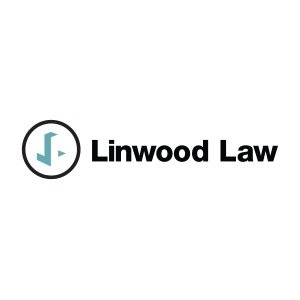Best Restructuring & Insolvency Lawyers in New Zealand
Share your needs with us, get contacted by law firms.
Free. Takes 2 min.
Or refine your search by selecting a city:
List of the best lawyers in New Zealand
About Restructuring & Insolvency Law in New Zealand
Restructuring and insolvency law in New Zealand serves as the framework for addressing situations where individuals or businesses face financial difficulties. These laws are designed to offer fair and practical mechanisms for handling unpaid debts, reorganizing financial arrangements, or winding up entities that cannot continue to operate. Whether you are a business owner, a creditor, or an individual struggling with personal debts, understanding your rights and obligations under New Zealand's legal system is essential. The aim is to balance the interests of debtors, creditors, and the wider community while promoting commercial certainty and economic stability.
Why You May Need a Lawyer
There are several situations where you might require legal assistance in matters of restructuring and insolvency. If you are a business owner facing financial pressure, a lawyer can help you evaluate restructuring options to keep your business afloat or guide you through the voluntary administration process. Individuals with overwhelming personal debt may also need advice on bankruptcy or alternatives such as debt repayment programs. Creditors often seek legal help to recover what they are owed in cases where a debtor is insolvent. Additionally, directors of companies at risk of insolvency require legal guidance to understand their duties and avoid liability. In any of these circumstances, professional advice helps protect your interests, ensures compliance with the law, and may lead to more favorable outcomes.
Local Laws Overview
In New Zealand, the principal pieces of legislation governing restructuring and insolvency are the Companies Act 1993, the Insolvency Act 2006, and the Receiverships Act 1993. These laws provide different processes depending on the entity involved and the circumstances. For companies, options include liquidation, voluntary administration, and receivership. Individuals may face bankruptcy proceedings or can opt for alternatives such as No Asset Procedures or Summary Instalment Orders. Directors have specific duties to prevent insolvent trading and must act in the best interests of creditors when insolvency is imminent. There are also robust protections in place for secured creditors and procedures for the orderly realisation of assets. Navigating these laws can be complex, making legal guidance extremely valuable.
Frequently Asked Questions
What is the difference between restructuring and insolvency?
Restructuring refers to processes aimed at reorganising financial affairs to avoid insolvency, such as renegotiating debt or seeking new investment. Insolvency occurs when an individual or company is unable to pay debts as they fall due, triggering formal legal processes like liquidation or bankruptcy.
What happens when a company goes into liquidation?
Liquidation is a formal process where a liquidator is appointed to wind up a company's affairs, sell its assets, and distribute the proceeds to creditors. After liquidation, the company ceases to exist.
What are the duties of company directors during financial distress?
Directors must act in the best interests of the company and avoid allowing the business to trade while insolvent. Breaches can result in personal liability.
Can individuals restructure their debts without declaring bankruptcy?
Yes, alternatives include the Summary Instalment Order and the No Asset Procedure, which allow individuals to manage or repay debts without becoming bankrupt.
What is voluntary administration?
Voluntary administration is a process where an independent administrator is appointed to a company to assess options, such as returning the company to profitability, selling it, or winding it up.
How are creditors’ interests protected?
Creditors have rights to information, involvement in decision-making during insolvency proceedings, and may receive repayments from the sale of assets in order of priority set by law.
Can a secured creditor recover their debt during insolvency?
Secured creditors may enforce their security interests, often outside the formal insolvency process, meaning they have priority over certain assets.
What is bankruptcy and what are its consequences?
Bankruptcy is a legal process for individuals unable to pay debts. It restricts your ability to manage finances and assets, generally lasts for three years, and affects credit records.
How is insolvency different for companies and individuals?
Company insolvency usually results in liquidation or receivership, focused on distributing assets to creditors. Individual insolvency involves bankruptcy or alternative repayment arrangements, with different legal effects and restrictions.
When should I seek legal advice?
Seek legal advice at the earliest sign of financial distress or if you receive formal demands from creditors. Timely advice can expand your options and protect your interests.
Additional Resources
There are several organisations and resources in New Zealand to help those facing restructuring or insolvency issues. The Insolvency and Trustee Service provides information for individuals about bankruptcy and repayment alternatives. The Companies Office has guidance on company insolvency, liquidation, and administration. The Ministry of Business, Innovation & Employment offers publications and updates on the legal framework. Trade and industry associations often have further support, and community law centres can provide free advice for individuals and small businesses.
Next Steps
If you believe you may be facing insolvency or if you want to explore restructuring options, your first step should be to gather information about your financial situation and any correspondence from creditors. Consider consulting a lawyer experienced in restructuring and insolvency law to review your options and ensure you understand your rights and obligations. Early intervention can help mitigate losses and may provide more choices for resolution. Prepare any relevant documentation, and be ready to discuss your goals and concerns with your legal adviser. If cost is an issue, check if you qualify for community legal help or government services. Taking action early gives you the best chance of achieving a positive outcome.
Lawzana helps you find the best lawyers and law firms in New Zealand through a curated and pre-screened list of qualified legal professionals. Our platform offers rankings and detailed profiles of attorneys and law firms, allowing you to compare based on practice areas, including Restructuring & Insolvency, experience, and client feedback.
Each profile includes a description of the firm's areas of practice, client reviews, team members and partners, year of establishment, spoken languages, office locations, contact information, social media presence, and any published articles or resources. Most firms on our platform speak English and are experienced in both local and international legal matters.
Get a quote from top-rated law firms in New Zealand — quickly, securely, and without unnecessary hassle.
Disclaimer:
The information provided on this page is for general informational purposes only and does not constitute legal advice. While we strive to ensure the accuracy and relevance of the content, legal information may change over time, and interpretations of the law can vary. You should always consult with a qualified legal professional for advice specific to your situation.
We disclaim all liability for actions taken or not taken based on the content of this page. If you believe any information is incorrect or outdated, please contact us, and we will review and update it where appropriate.
Browse restructuring & insolvency law firms by city in New Zealand
Refine your search by selecting a city.















